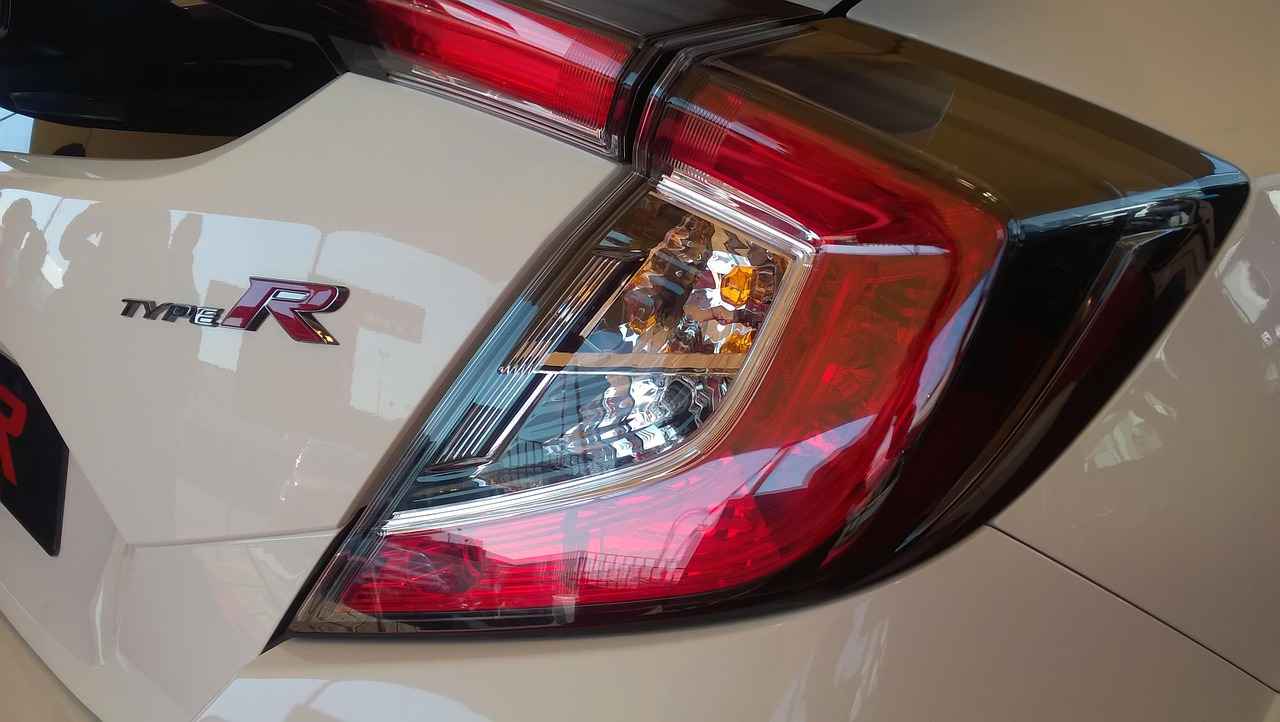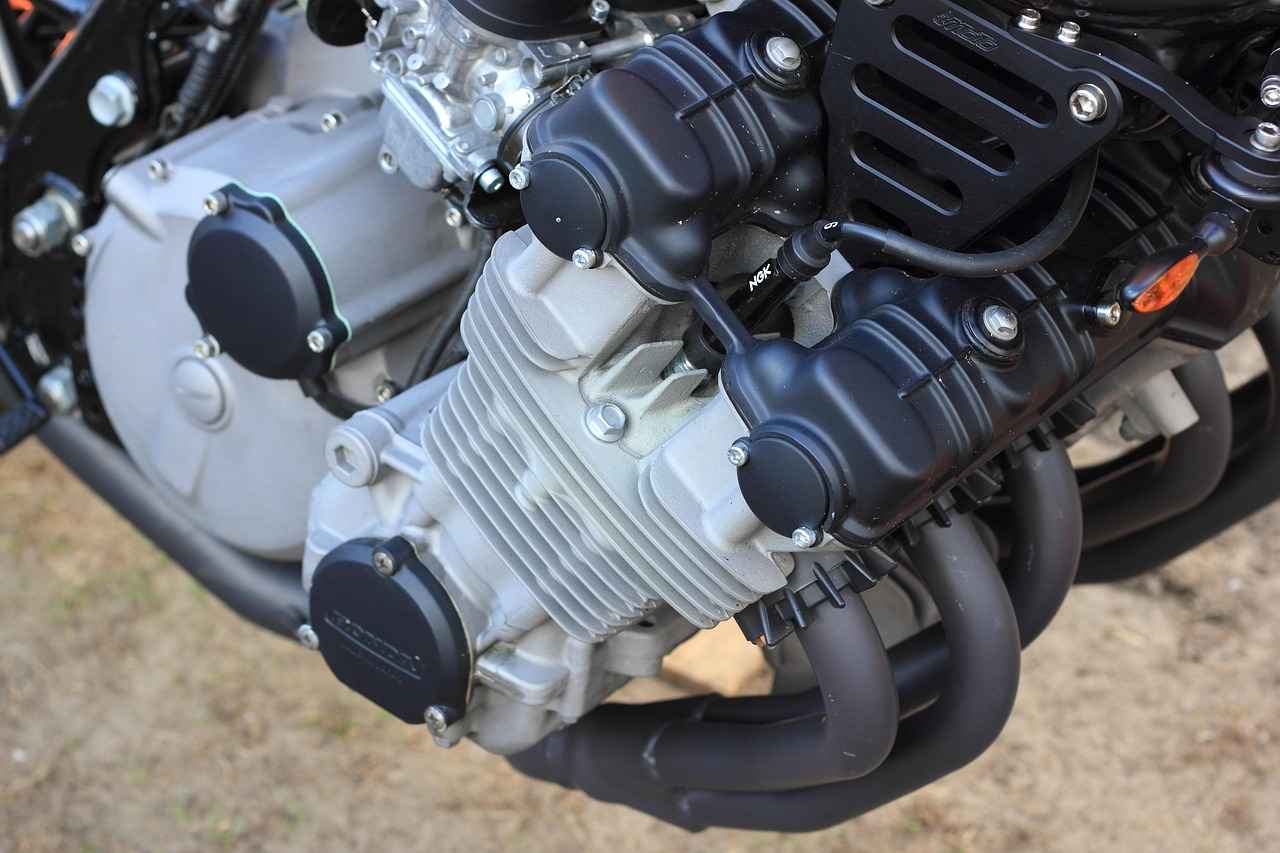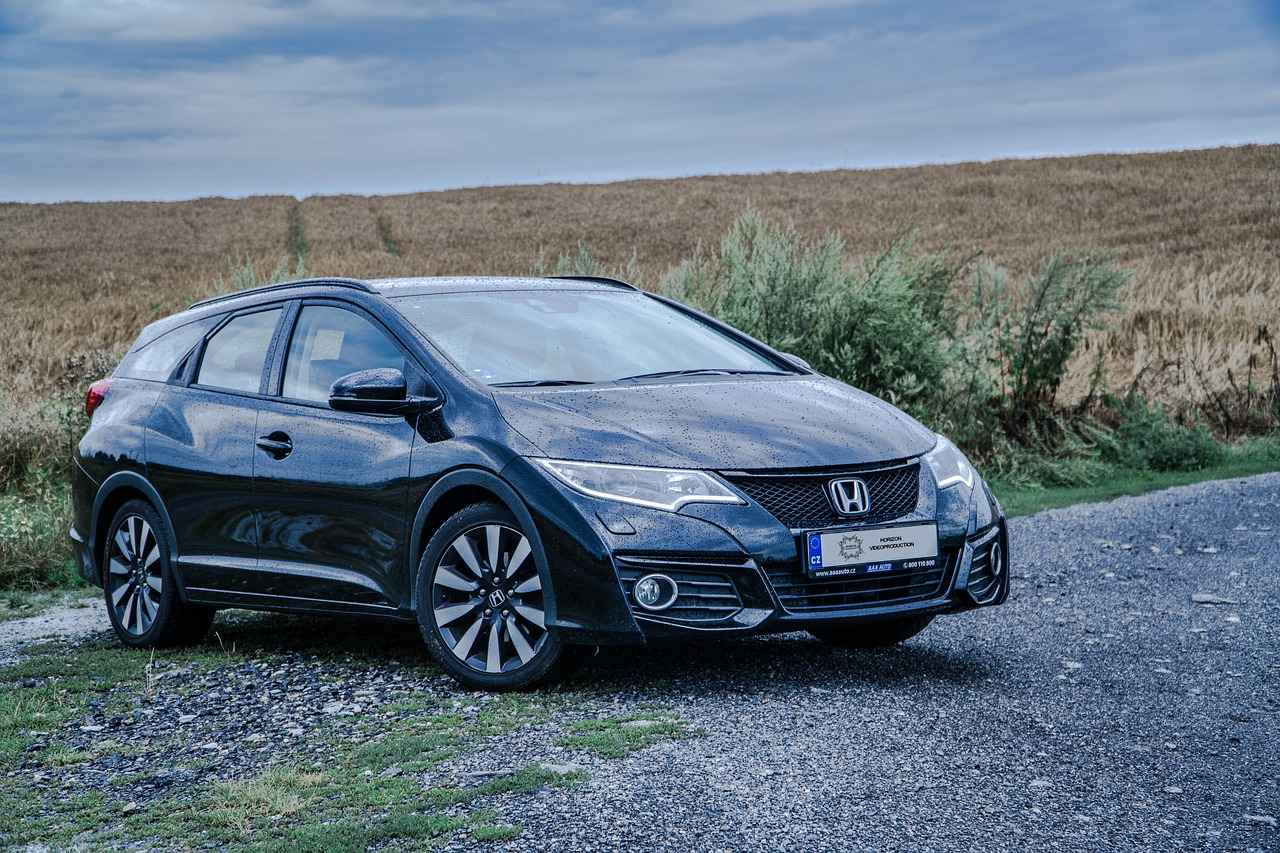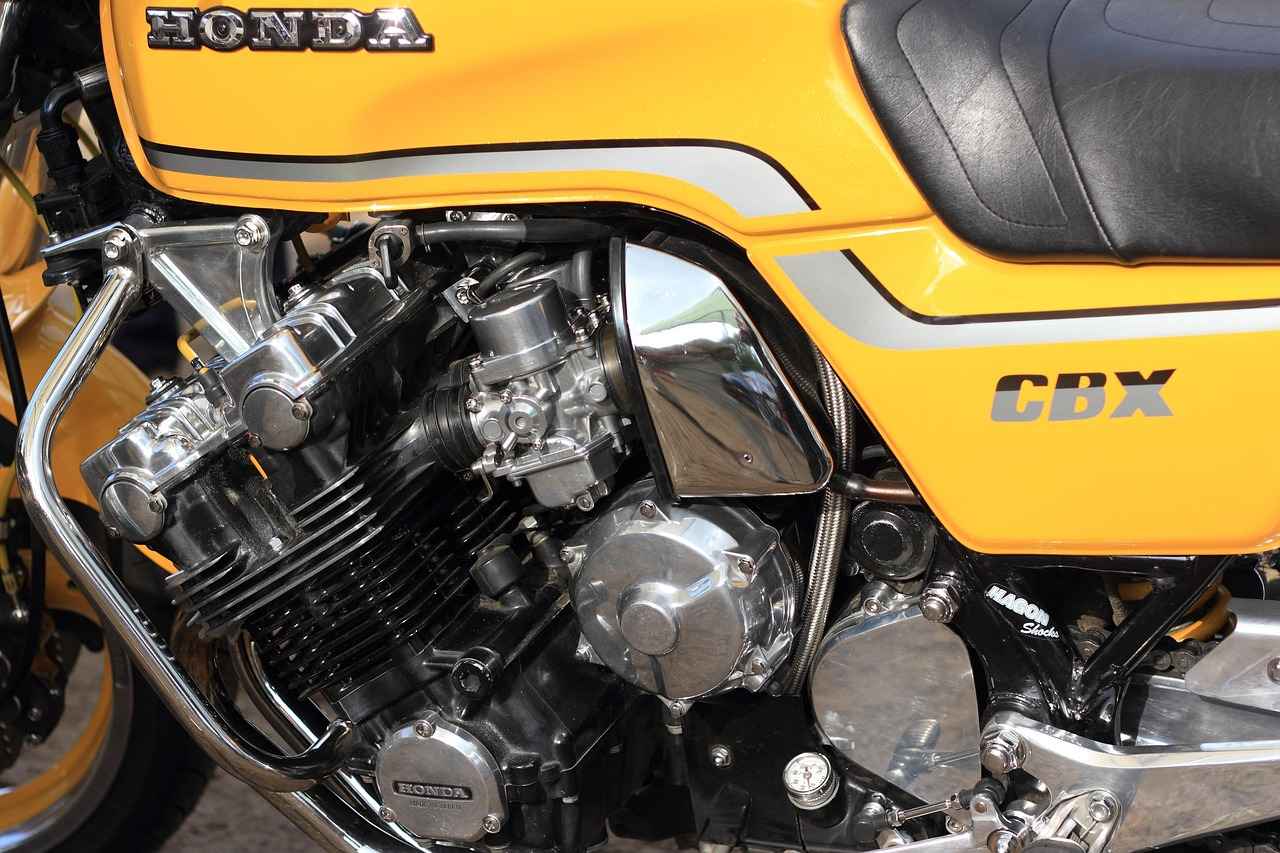The Honda Accord is a popular choice among sedan enthusiasts, known for its reliability, comfort, and performance. One question that frequently arises among potential buyers is whether the Honda Accord offers all-wheel drive (AWD) capabilities. This article delves into the features, performance, and comparisons of the Honda Accord in relation to AWD, providing valuable insights for those considering this vehicle.
All-wheel drive is a drivetrain configuration that allows a vehicle to distribute power to all four wheels simultaneously. This feature enhances traction, stability, and control, especially in challenging driving conditions such as rain, snow, or off-road situations. For many drivers, AWD can significantly improve their driving experience and safety.
Traditionally, the Honda Accord has been equipped with front-wheel drive (FWD) as its standard configuration. However, in recent years, Honda has introduced AWD options in some of its newer models. Understanding these options is crucial for buyers who prioritize AWD capabilities in their vehicles.
Opting for AWD in a sedan like the Honda Accord offers several advantages. These include:
- Improved Handling: AWD enhances cornering stability and responsiveness.
- Better Traction: Power is distributed to all wheels, allowing for better grip on slippery surfaces.
- Enhanced Stability: AWD systems provide added confidence during inclement weather.
These benefits can be particularly appealing for drivers living in regions with harsh winters or unpredictable weather patterns.
When comparing the Honda Accord to its competitors, it’s essential to evaluate the availability of AWD. Many rival sedans, such as the Toyota Camry and Subaru Legacy, offer AWD as a standard or optional feature. This availability may influence buyer preferences and decisions, especially for those who prioritize traction and stability.
The performance characteristics of the Honda Accord equipped with AWD can differ significantly from its FWD counterparts. AWD models often provide:
- Improved Acceleration: AWD can enhance acceleration from a standstill, especially on slippery surfaces.
- Enhanced Control: Drivers may experience more confident handling in adverse conditions.
These performance benefits make the AWD version of the Accord an attractive choice for many drivers.
Fuel efficiency is a critical concern for many car buyers. Generally, AWD systems can add weight and complexity, potentially impacting fuel economy. This section will explore how the Honda Accord’s AWD models compare to their FWD counterparts in terms of fuel efficiency, providing insights for cost-conscious consumers.
Customer feedback is invaluable when assessing the real-world performance of the Honda Accord with AWD. Many owners report increased confidence and safety in various driving conditions, while others note the added weight may slightly affect fuel economy. Analyzing these reviews helps gauge overall satisfaction and reliability.
Owning an AWD vehicle can entail different maintenance needs than FWD models. Regular maintenance checks, including fluid levels and tire condition, become even more critical for AWD systems. Understanding these requirements is crucial for long-term ownership and cost management.
The addition of AWD can impact the overall cost of the Honda Accord. Typically, AWD models come with a higher price tag compared to their FWD counterparts. This section will break down potential price differences and discuss the value for money associated with opting for AWD.
Looking ahead, it’s essential to consider the future of AWD in the Honda Accord. Will Honda expand its AWD offerings in upcoming models? This section will explore potential trends and innovations that may shape the future of the Honda Accord.
Deciding whether to opt for a Honda Accord with AWD depends on various factors, including driving conditions, budget, and personal preferences. By understanding the features and benefits of the AWD system, potential buyers can make informed decisions.

What is All-Wheel Drive (AWD)?
All-Wheel Drive (AWD) is a sophisticated vehicle technology designed to optimize traction and control by distributing power to all four wheels. Unlike traditional two-wheel drive systems, which only power either the front or rear wheels, AWD enhances a vehicle’s ability to navigate a wide range of driving conditions. This is particularly beneficial in situations such as rain, snow, or off-road environments, where maintaining grip on slippery surfaces is essential.
AWD systems can vary significantly between manufacturers. Some vehicles feature a full-time AWD system that continuously powers all four wheels, while others use a part-time system that engages the rear wheels only when needed. This flexibility allows for improved fuel efficiency in normal driving conditions while still providing the necessary support when traction is compromised.
Incorporating AWD into a vehicle’s design not only enhances safety but also boosts performance. Drivers can experience smoother acceleration and sharper handling, particularly during cornering. The distribution of power helps to minimize wheel slip, ensuring that the vehicle maintains its intended path even in challenging conditions.
For many drivers, the advantages of AWD extend beyond just performance. The confidence that comes from knowing that all four wheels are working together can significantly enhance the driving experience. This is especially true for those living in regions with harsh winters or frequent rain, where road conditions can change rapidly.
In summary, All-Wheel Drive is a valuable feature that can greatly improve a vehicle’s performance and safety. Whether navigating through a snowstorm or tackling a muddy trail, AWD provides the necessary support to ensure that drivers can maintain control and stability.
Does the Honda Accord Have AWD Options?
While the Honda Accord has traditionally been known for its front-wheel drive (FWD) configuration, recent models have introduced AWD options. This shift reflects a growing demand for enhanced traction and stability in sedans. The availability of AWD in specific Honda Accord trims allows buyers to choose a model that best suits their driving needs.
Potential buyers should consider the specific features and performance of AWD-equipped Honda Accords. Understanding the differences between FWD and AWD configurations can help in making an informed decision, especially for those who frequently drive in adverse weather conditions.
Why Choose AWD in a Sedan?
The choice of AWD in a sedan like the Honda Accord can offer numerous benefits. For instance, improved handling on wet or icy roads can enhance safety for both the driver and passengers. Additionally, AWD can provide a more engaging driving experience, allowing for better acceleration and cornering capabilities.
Many drivers may also find that AWD reduces the likelihood of getting stuck in snow or mud, making it a practical choice for those living in regions with unpredictable weather. Ultimately, the decision to opt for AWD should be based on individual driving habits and environmental factors.
Honda Accord vs. Competitors: AWD Availability
When comparing the Honda Accord to its competitors, it’s crucial to assess the availability of AWD. Many rival sedans offer this feature, which can influence buyer preferences. By understanding how the Accord stacks up against its competitors, potential buyers can make more informed choices that align with their needs.
Performance of Honda Accord with AWD
The performance of the Honda Accord equipped with AWD can differ significantly from its FWD counterparts. Drivers may notice enhanced acceleration and improved cornering stability, particularly in challenging driving conditions. Evaluating these differences can help buyers understand the unique driving experience offered by the AWD models.
Fuel Efficiency: AWD vs. FWD in Honda Accord
Fuel efficiency is a critical consideration for many car buyers. This section will explore how AWD affects the Honda Accord’s fuel economy compared to its FWD counterparts. Understanding these differences can aid buyers in making informed decisions based on their budget and driving habits.
Honda Accord AWD: Customer Reviews and Experiences
Customer feedback can provide valuable insights into the real-world performance of the Honda Accord with AWD. Exploring these reviews helps gauge overall satisfaction and reliability. Many drivers appreciate the added confidence that comes with AWD, particularly in adverse weather conditions.
Maintenance Considerations for AWD Vehicles
Owning an AWD vehicle can entail different maintenance needs than FWD models. Understanding these requirements is crucial for long-term ownership and cost management. Regular maintenance checks and fluid changes are essential to ensure optimal performance and longevity of the AWD system.
Cost Implications of AWD in the Honda Accord
The addition of AWD can impact the overall cost of the Honda Accord. This section will break down potential price differences and value for money, helping buyers understand the financial implications of choosing an AWD model.
Future Trends: AWD in Honda Accord Models
Looking ahead, it’s essential to consider the future of AWD in the Honda Accord. Will Honda expand its AWD offerings in upcoming models? This section will explore potential trends and innovations that may shape the future of the Accord.
Deciding whether to opt for a Honda Accord with AWD depends on various factors, including driving conditions, budget, and personal preferences. By weighing the pros and cons, potential buyers can make an informed choice that best suits their needs.

Does the Honda Accord Have AWD Options?
The Honda Accord has long been recognized as a reliable and stylish sedan, appealing to a wide range of drivers. One of the questions frequently asked by potential buyers is whether the Honda Accord offers All-Wheel Drive (AWD) options. This article delves into the specifics of the Honda Accord’s drivetrain configurations, helping you make an informed decision.
The standard drivetrain for most Honda Accord models is front-wheel drive (FWD). This configuration is designed to provide excellent fuel efficiency and handling, making it a popular choice among sedan enthusiasts. However, in recent years, Honda has introduced AWD in select models, expanding the versatility of the Accord.
Choosing an AWD version of the Honda Accord can offer significant advantages, particularly for those living in areas with challenging weather conditions. AWD systems distribute power to all four wheels, enhancing traction and stability on slippery roads. This feature can be particularly beneficial during rainy or snowy seasons.
When comparing the performance of the AWD and FWD models, it’s essential to consider several factors:
- Traction: AWD provides superior grip on slick surfaces.
- Handling: Drivers may notice improved handling characteristics with AWD during adverse weather.
- Fuel Efficiency: FWD models typically offer better fuel economy compared to their AWD counterparts.
While the Honda Accord offers AWD in select trims, many competitors in the same class provide this feature as standard across their lineups. Notable rivals include the Toyota Camry and Subaru Legacy, both of which have established a reputation for their AWD capabilities. Understanding these options can help potential buyers weigh their choices more effectively.
The performance of the Honda Accord with AWD can significantly differ from its FWD models. Drivers often report a more confident driving experience in AWD variants, especially in adverse weather. The added weight of the AWD system may slightly affect acceleration and fuel economy, but many find the trade-off worthwhile for the enhanced safety and control.
Fuel efficiency is a critical consideration for many car buyers. Generally, FWD models of the Honda Accord will deliver better mileage compared to AWD models. This is due to the additional components and weight associated with the AWD system. Buyers should evaluate their driving habits and conditions to determine if the benefits of AWD outweigh the potential fuel economy drawbacks.
Customer feedback can provide valuable insights into the real-world performance of the Honda Accord with AWD. Many owners appreciate the added confidence that comes with AWD, particularly in regions that experience harsh winters. However, some users have noted that the fuel efficiency is less than that of FWD models, which is an important consideration for budget-conscious buyers.
Owning an AWD vehicle can entail different maintenance needs compared to FWD models. Regular inspections of the AWD system, including the differential and transfer case, are essential for ensuring longevity and performance. Understanding these requirements is crucial for long-term ownership and cost management.
The addition of AWD can impact the overall cost of the Honda Accord. Typically, AWD models are priced higher than their FWD counterparts due to the added technology and complexity. Buyers should consider their budget and the value they place on AWD capabilities when making their decision.
Looking ahead, it will be interesting to see how Honda evolves its AWD offerings in the Accord lineup. As consumer preferences shift towards all-weather capability, there is potential for Honda to expand its AWD options in upcoming models, making the Accord an even more attractive choice for buyers.
In summary, understanding the AWD options available in the Honda Accord can greatly influence your purchasing decision. Whether you prioritize fuel efficiency, handling, or safety, knowing the pros and cons of AWD versus FWD will help you choose the right model for your needs.

Why Choose AWD in a Sedan?
When considering a sedan, the choice of drivetrain can significantly influence your driving experience. One option that has gained traction among consumers is All-Wheel Drive (AWD). This feature is not just a luxury; it offers several practical benefits that can enhance safety and performance, particularly in challenging driving conditions.
Improved Handling: AWD systems provide better handling by distributing power to all four wheels. This means that during cornering or navigating turns, the vehicle maintains better grip, reducing the likelihood of skidding. For drivers who often traverse winding roads or navigate city streets, this enhanced handling can translate to a more confident driving experience.
Better Traction on Slippery Roads: One of the most significant advantages of AWD is its ability to improve traction on slippery surfaces, such as wet, icy, or snowy roads. Traditional front-wheel drive vehicles can struggle in these conditions, often leading to reduced control. With AWD, power is sent to the wheels that need it most, allowing for a more stable and secure ride. This is particularly beneficial for those living in regions with harsh winters or frequent rain.
Enhanced Stability: Stability is crucial for safe driving, and AWD systems contribute to this by ensuring that all four wheels work together to maintain balance. This is especially important during sudden stops or evasive maneuvers. By providing a more stable platform, AWD can help prevent accidents caused by loss of control.
Increased Versatility: AWD vehicles are not limited to just one type of terrain. Whether you’re driving on highways, dirt roads, or through inclement weather, AWD offers versatility that can accommodate various driving conditions. This makes it an attractive option for those who enjoy outdoor activities or live in diverse environments.
Safety Benefits: The safety benefits of AWD cannot be overstated. With improved traction and stability, drivers are less likely to encounter dangerous situations. Many AWD systems also come equipped with advanced technology that can enhance safety features, such as traction control and stability control, further reducing the risk of accidents.
Fuel Efficiency Considerations: While AWD provides numerous advantages, it’s essential to consider fuel efficiency. Traditionally, AWD systems can lead to increased fuel consumption compared to front-wheel drive vehicles. However, advancements in technology have led to more efficient AWD systems that minimize this impact. Potential buyers should weigh the benefits against the possible increase in fuel costs.
Resale Value: Vehicles equipped with AWD can have a higher resale value, especially in markets where winter weather is common. Buyers often seek out AWD options for their reliability and performance in adverse conditions, making them more desirable in the used car market.
In summary, choosing a sedan with AWD can offer significant advantages in terms of handling, traction, stability, and safety. These benefits are particularly crucial for those living in areas with challenging weather conditions. While there may be trade-offs in terms of fuel efficiency, the overall advantages often outweigh these considerations, making AWD a compelling choice for many drivers.

Honda Accord vs. Competitors: AWD Availability
The Honda Accord has long been a favorite among sedan enthusiasts for its reliability, comfort, and performance. However, as the automotive market evolves, consumers are increasingly considering features like All-Wheel Drive (AWD) when making their purchasing decisions. In this context, it is crucial to examine how the Accord stacks up against its competitors regarding AWD availability.
When comparing the Honda Accord to its rivals, the availability of AWD becomes a significant factor. While the Accord has traditionally been known for its front-wheel drive (FWD) configuration, some recent models have introduced AWD options. This shift reflects the growing demand for vehicles that can handle diverse driving conditions.
Many competitors, such as the Toyota Camry, Subaru Legacy, and Mazda6, offer AWD as a standard or optional feature. This availability can sway buyer preferences, particularly for those living in regions with challenging weather conditions, such as snow or heavy rain. For instance, the Subaru Legacy comes equipped with AWD across all its trims, making it a go-to choice for those prioritizing traction and stability.
- Toyota Camry: Offers AWD as an option on select trims, providing buyers with versatility.
- Subaru Legacy: Standard AWD across all models, appealing to safety-conscious consumers.
- Mazda6: Currently does not offer AWD, focusing instead on driving dynamics and FWD performance.
While the Honda Accord does provide AWD in certain configurations, it is essential to recognize that many competitors have fully embraced this feature. This could lead potential buyers to consider alternatives if AWD is a priority for their driving needs.
Moreover, the performance of AWD systems can vary significantly from one manufacturer to another. For instance, the Toyota Camry’s AWD system is designed to enhance fuel efficiency while providing better grip, whereas the Subaru Legacy’s AWD is engineered for maximum traction in all conditions. Understanding these differences can help buyers make informed decisions based on their specific driving environments.
Another aspect to consider is the fuel efficiency of AWD vehicles compared to their FWD counterparts. Generally, AWD systems can add weight and complexity, potentially impacting fuel economy. For example, while the Honda Accord’s FWD models are known for their impressive mileage, the addition of AWD may lead to a decrease in overall efficiency. This trade-off is a crucial consideration for buyers who prioritize fuel savings.
In terms of customer satisfaction, reviews of AWD-equipped vehicles can provide valuable insights into their real-world performance. Many drivers appreciate the enhanced stability and confidence that AWD offers, particularly in adverse weather conditions. However, some may find that the added cost of AWD isn’t justified by their driving habits or local climate.
Ultimately, the decision to choose a Honda Accord with AWD versus a competitor with a more established AWD offering will depend on individual preferences, driving conditions, and budget. Buyers should weigh the benefits of AWD against the potential drawbacks, including cost and fuel efficiency.
In conclusion, while the Honda Accord has made strides in offering AWD options, it faces stiff competition from rivals that provide more comprehensive AWD capabilities. As the automotive landscape continues to evolve, it will be interesting to see how Honda adapts its offerings to meet consumer demands.

Performance of Honda Accord with AWD
The Honda Accord has long been a popular choice among sedan enthusiasts, known for its reliability, comfort, and performance. With the introduction of All-Wheel Drive (AWD) in some models, potential buyers are eager to understand how this feature impacts the driving experience compared to the traditional Front-Wheel Drive (FWD) versions.
The performance of the Honda Accord with AWD showcases a distinct driving experience, setting it apart from its FWD counterparts. One of the most notable differences lies in traction. AWD systems distribute power to all four wheels, enhancing grip on slippery surfaces such as rain-soaked roads or snowy terrains. This capability allows for a more confident driving experience, particularly in adverse weather conditions.
Another significant aspect is handling. The AWD system provides better stability and cornering performance, allowing the Accord to navigate turns with greater precision. This can be especially advantageous in regions where winding roads or sudden weather changes are common. Moreover, the AWD system can help to mitigate the understeering tendency that some FWD vehicles may exhibit, contributing to a more balanced feel while driving.
Performance metrics also reveal differences in acceleration. The AWD models tend to deliver power more effectively, resulting in quicker starts and better responsiveness when merging onto highways. This is due to the enhanced traction provided by the AWD system, which can be a game-changer for drivers who prioritize performance.
However, it is essential to note that while the AWD system offers numerous advantages, it can also introduce some trade-offs. For instance, the added weight of the AWD components may slightly impact fuel efficiency compared to the lighter FWD models. Potential buyers should consider these factors when evaluating their options.
In terms of driving dynamics, the AWD Honda Accord provides a more engaging experience, particularly for those who appreciate spirited driving. The system’s ability to adapt to varying road conditions enhances driver confidence, making it an appealing choice for those living in areas with unpredictable weather.
In summary, the performance of the Honda Accord with AWD significantly enhances the driving experience compared to its FWD models. With improved traction, handling, and acceleration, the AWD variant caters to drivers seeking a more versatile and capable sedan. Understanding these differences can help buyers make informed decisions based on their driving needs and preferences.

Fuel Efficiency: AWD vs. FWD in Honda Accord
Fuel efficiency is a pivotal factor for many car buyers, especially in today’s environmentally conscious market. With rising fuel prices and an increasing focus on sustainability, understanding how different drive systems affect fuel economy is essential. This section delves into the comparison between All-Wheel Drive (AWD) and Front-Wheel Drive (FWD) in the Honda Accord, providing insights that can guide potential buyers in their decision-making process.
The Honda Accord has long been known for its impressive fuel efficiency, particularly in its FWD configurations. FWD vehicles typically offer better fuel economy because they are lighter and have fewer components that contribute to energy loss. The powertrain in FWD models directs power to the front wheels, which generally results in lower energy consumption during driving. This efficiency is especially noticeable in highway driving conditions, where the Accord excels.
On the other hand, the introduction of AWD in some Honda Accord models brings a different dynamic to the table. While AWD enhances traction and stability in adverse weather conditions, it can also lead to a decrease in fuel efficiency. This is largely due to the additional weight of the AWD system and the energy required to power all four wheels. As a result, drivers may notice that the AWD variants of the Accord consume more fuel compared to their FWD counterparts.
| Model | Drive Type | Fuel Efficiency (mpg) |
|---|---|---|
| Honda Accord FWD | Front-Wheel Drive | 30 city / 38 highway |
| Honda Accord AWD | All-Wheel Drive | 26 city / 34 highway |
As illustrated in the table above, the FWD Honda Accord achieves approximately 4 miles per gallon more in city driving and 4 miles per gallon more on the highway compared to its AWD counterpart. This discrepancy can be significant for drivers who prioritize fuel efficiency, especially those who frequently commute or take long trips.
Moreover, it’s essential to consider the driving conditions in which the vehicle will be used. For individuals living in areas with harsh winters or frequent rain, the advantages of AWD—such as enhanced traction and control—may outweigh the drawbacks of reduced fuel economy. Conversely, for those in milder climates, the FWD model may be the more economical choice.
In conclusion, while the Honda Accord’s AWD option provides added benefits in terms of handling and safety, it does come at the cost of fuel efficiency. Buyers should weigh these factors carefully, considering their typical driving conditions and personal preferences. Ultimately, the decision between AWD and FWD in the Honda Accord will depend on individual needs and priorities.

Honda Accord AWD: Customer Reviews and Experiences
The Honda Accord has long been a favorite among sedan enthusiasts, known for its reliability, comfort, and performance. With the introduction of All-Wheel Drive (AWD) in certain models, many potential buyers are eager to understand how this feature impacts the overall driving experience. One of the best ways to gauge the effectiveness and satisfaction of AWD in the Honda Accord is through customer feedback. This section delves into the reviews and experiences shared by Honda Accord AWD owners, providing valuable insights into its real-world performance.
Customer reviews often highlight the enhanced traction and stability that AWD provides, particularly in challenging weather conditions. Many users appreciate the confidence that comes with driving an AWD vehicle during rain or snow. For instance, one customer noted, “I feel much safer driving my Accord AWD during winter months. It handles beautifully on icy roads.” This sentiment is echoed by numerous drivers who emphasize the improved handling and control that AWD offers.
When it comes to reliability, many owners report a positive experience with their AWD models. The Honda Accord has a reputation for durability, and this extends to its AWD variants. However, some customers have pointed out that while maintenance costs are generally reasonable, AWD vehicles may require more frequent checks on components like the transfer case and differential. One reviewer mentioned, “I’ve had to pay a bit more attention to maintenance, but the benefits of AWD are worth it.”
One common concern among potential buyers is the impact of AWD on fuel efficiency. Reviews indicate that while the AWD models may consume slightly more fuel than their front-wheel drive counterparts, many drivers find the trade-off acceptable for the added safety and performance. A customer shared, “I noticed a small drop in MPG, but the peace of mind in bad weather makes it worthwhile.” This feedback suggests that while fuel economy is a consideration, the overall benefits of AWD often outweigh this drawback.
Many reviews emphasize the difference in driving experience between the AWD and FWD models. Owners often describe the AWD as providing a more engaging and responsive drive, especially in dynamic driving situations. One user remarked, “The AWD gives my Accord a sportier feel, and I love how it grips the road during turns.” Such positive feedback highlights the performance enhancements that AWD brings to the driving experience.
When comparing customer satisfaction between AWD and FWD models, it’s evident that AWD owners tend to express a higher level of satisfaction, particularly in regions with inclement weather. Many reviews point out that the added security of AWD makes a significant difference in their driving confidence. One customer stated, “I wouldn’t go back to FWD after experiencing AWD. It’s a game-changer for my daily commute.”
In summary, customer reviews of the Honda Accord AWD reveal a generally positive outlook, with many owners praising its performance, safety, and handling. While some concerns regarding maintenance and fuel efficiency exist, the overwhelming sentiment is that the benefits of AWD make it a worthwhile investment for those living in areas with challenging driving conditions. As more drivers share their experiences, it becomes clear that the Honda Accord AWD is a strong contender in the sedan market, offering a blend of reliability and enhanced driving dynamics.

Maintenance Considerations for AWD Vehicles
When it comes to vehicle maintenance, all-wheel drive (AWD) vehicles have unique requirements that differ significantly from their front-wheel drive (FWD) counterparts. Understanding these maintenance needs is essential for ensuring longevity and reliability, especially for owners who want to manage costs effectively.
AWD systems are designed to distribute power to all four wheels, which can enhance traction and stability. However, this complexity introduces additional maintenance considerations. For instance, the drivetrain components, including the differentials and transfer case, require regular inspections and servicing to avoid premature wear and tear.
- Fluid Changes: AWD systems typically require different fluids than FWD systems. Regularly changing the transfer case fluid and differential fluids is crucial.
- Tire Maintenance: Since AWD vehicles rely on all four tires for optimal performance, maintaining uniform tire tread depth is vital. Rotating tires regularly can help achieve this.
- Brake Checks: The added weight and complexity of AWD can lead to increased brake wear. Regular brake inspections are essential for safety.
AWD vehicles can experience unique problems that FWD models typically do not face. Transmission issues can arise if the system is not properly maintained, leading to costly repairs. Additionally, owners should be aware of potential drivetrain noises, which can indicate underlying issues that need immediate attention.
Maintaining an AWD vehicle can be more expensive than maintaining a FWD vehicle. The complexity of the AWD system often leads to higher labor costs during service. Owners should budget for these additional expenses to avoid financial surprises.
Investing time and resources into maintaining an AWD vehicle can yield significant benefits. Proper maintenance ensures that the vehicle performs at its best, providing enhanced safety and improved handling in various driving conditions. Additionally, regular upkeep can extend the vehicle’s lifespan, ultimately saving money in the long run.
In summary, owning an AWD vehicle involves specific maintenance needs that should not be overlooked. By understanding these requirements and proactively addressing them, owners can enjoy the full benefits of their AWD system while managing costs effectively. Whether it’s through regular inspections, fluid changes, or budgeting for potential repairs, being informed is key to successful AWD ownership.

Cost Implications of AWD in the Honda Accord
The addition of All-Wheel Drive (AWD) to the Honda Accord can significantly influence the overall cost of the vehicle. This section will delve into the various price implications and assess whether the benefits justify the investment.
First and foremost, it is essential to understand that the integration of AWD into the Honda Accord typically comes with a price premium. On average, buyers can expect to pay an additional 2,000 to 4,000 dollars compared to the standard front-wheel drive (FWD) models. This price difference can vary based on the trim level and the specific features included in the AWD package.
To provide a clearer picture, here is a breakdown of potential costs:
| Model Trim | FWD Price | AWD Price | Price Difference |
|---|---|---|---|
| Honda Accord LX | $27,000 | $29,000 | $2,000 |
| Honda Accord Sport | $30,000 | $32,500 | $2,500 |
| Honda Accord Touring | $36,000 | $40,000 | $4,000 |
While the upfront cost is a significant factor, potential buyers should also consider the long-term value of investing in AWD. Vehicles equipped with AWD often have better resale values, especially in regions where harsh weather conditions are common. This can make them more appealing to future buyers, thereby offsetting some of the initial costs.
Moreover, the benefits of AWD extend beyond mere cost. The enhanced traction and stability provided by AWD can lead to improved safety and performance, particularly in adverse weather conditions. This can be a crucial consideration for drivers living in areas prone to snow, ice, or heavy rain.
In terms of fuel efficiency, it is important to note that AWD models may consume slightly more fuel than their FWD counterparts. This increase in fuel consumption can impact the overall cost of ownership over time. However, many drivers find that the added safety and confidence in handling justify this trade-off.
In summary, while the addition of AWD to the Honda Accord does increase the initial purchase price, it also offers several advantages that may enhance the overall value for money. Understanding these cost implications can help potential buyers make informed decisions that align with their driving needs and budget.

Future Trends: AWD in Honda Accord Models
As we look to the horizon, the future of All-Wheel Drive (AWD) in the Honda Accord presents intriguing possibilities. With the automotive landscape constantly evolving, it’s essential to understand how Honda might adapt its offerings to meet changing consumer demands and technological advancements. This section will delve into potential trends and developments regarding AWD in upcoming Honda Accord models.
Firstly, the demand for AWD vehicles has been on the rise, particularly in regions where weather conditions can be unpredictable. Consumers are increasingly seeking vehicles that offer enhanced traction and stability. Given this trend, it is plausible that Honda may expand its AWD offerings in the Accord lineup to cater to a broader audience.
Moreover, advancements in technology could play a significant role in the future of AWD in the Honda Accord. With the integration of hybrid and electric powertrains, Honda has the opportunity to innovate its AWD systems. Future models might feature more efficient, lightweight AWD systems that not only improve performance but also enhance fuel efficiency, addressing consumer concerns about environmental impact.
Another potential trend is the incorporation of smart AWD systems that adapt to driving conditions in real-time. These systems can optimize power distribution between the front and rear wheels based on factors such as road surface and driver input, providing a more dynamic driving experience. This technology could appeal to a younger demographic that values both performance and versatility.
Additionally, Honda’s commitment to safety features may influence the future of AWD in the Accord. As automakers increasingly prioritize driver assistance technologies, integrating AWD with these systems could enhance overall vehicle stability and control. For instance, an AWD system that works in tandem with adaptive cruise control and lane-keeping assist can create a safer driving environment, particularly in challenging conditions.
In terms of competition, Honda must stay vigilant. Many competitors are already offering AWD options in their sedans, which could sway potential buyers. To remain competitive, Honda might not only need to expand AWD availability but also ensure that it is paired with the performance and luxury that consumers expect from a vehicle in this class.
While the current Honda Accord primarily features front-wheel drive, the growing interest in AWD could prompt Honda to introduce AWD as a standard or optional feature in more models. This shift could significantly influence buyer decisions, especially for those living in regions where AWD is advantageous.
In conclusion, the future of AWD in the Honda Accord is poised for change. As consumer preferences evolve and technology advances, Honda has the opportunity to innovate and expand its AWD offerings. By focusing on efficiency, safety, and performance, Honda can ensure that the Accord remains a competitive choice in the sedan market. The coming years will be crucial in determining how Honda adapts to these trends and what that means for potential buyers.

Conclusion: Should You Choose a Honda Accord with AWD?
When considering whether to choose a Honda Accord with All-Wheel Drive (AWD), several factors come into play that can significantly influence your decision. Understanding these elements is crucial for making an informed choice that aligns with your driving needs and lifestyle.
- Driving Conditions: One of the primary considerations is the climate in which you live. If you frequently encounter rain, snow, or icy roads, the added traction and stability of AWD can enhance your driving experience. In contrast, if you reside in a region with mild weather, a front-wheel drive (FWD) model may suffice.
- Budget: The cost difference between AWD and FWD models can be significant. AWD versions typically come with a higher price tag and may incur additional maintenance costs. It’s essential to evaluate whether the benefits of AWD justify the extra expense within your budget.
- Personal Preferences: Your driving style and preferences also play a crucial role. If you enjoy a sportier driving experience, the AWD system in the Honda Accord can provide enhanced handling and cornering capabilities, making it a more engaging choice.
Moreover, it’s important to consider the fuel efficiency of AWD models compared to their FWD counterparts. Generally, AWD vehicles can exhibit lower fuel economy due to the additional weight and complexity of the drivetrain. If fuel savings are a priority for you, this could be a deciding factor.
In addition, evaluating customer reviews and experiences can provide valuable insights into the performance and reliability of the Honda Accord with AWD. Many users report satisfaction with the added confidence and control that AWD offers, especially in challenging driving conditions.
Maintenance considerations must also be addressed. AWD systems can require different maintenance routines compared to FWD vehicles. Understanding these needs will help you prepare for long-term ownership and potential costs associated with maintaining an AWD system.
Finally, think about the future trends in the automotive market. As demand for AWD vehicles grows, Honda may expand its offerings in this area, making it worthwhile to stay informed about upcoming models and features.
In summary, deciding whether to opt for a Honda Accord with AWD involves a careful assessment of driving conditions, budget constraints, and personal preferences. By weighing these factors, you can make a choice that best fits your lifestyle and driving needs.
Frequently Asked Questions
- Does the Honda Accord come with all-wheel drive?
While the Honda Accord primarily features front-wheel drive, some newer models do offer all-wheel drive options. This is a great choice for those needing extra traction, especially in inclement weather.
- What are the benefits of choosing an AWD Honda Accord?
Opting for an AWD Honda Accord can enhance your driving experience by providing improved handling and stability on slippery roads. It’s like having a safety net when the weather turns nasty!
- How does AWD affect the fuel efficiency of the Honda Accord?
Generally, AWD models may have slightly lower fuel efficiency compared to their front-wheel drive counterparts due to the added weight and complexity of the system. However, the trade-off can be worth it for the added traction.
- Are there any maintenance differences between AWD and FWD Honda Accords?
Yes, AWD vehicles typically require different maintenance, including more frequent checks on the drivetrain and potential costs related to the system. It’s essential to stay on top of these to ensure longevity.
- Will Honda offer more AWD options in future Accord models?
While we can’t predict the future, there are indications that Honda may expand its AWD offerings in upcoming models, responding to consumer demand for better traction and control.



